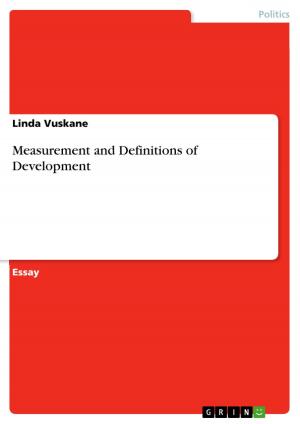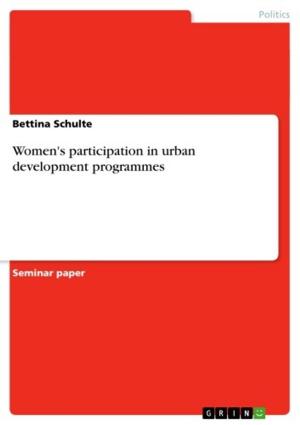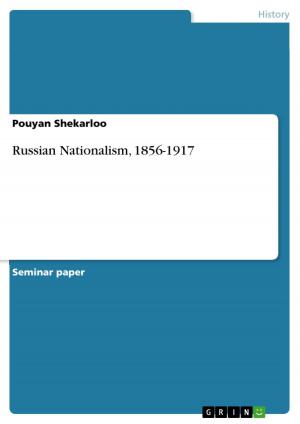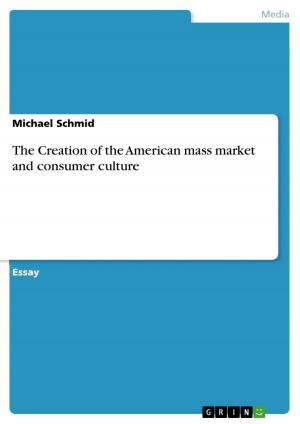| Author: | Fatma Torun | ISBN: | 9783638335447 |
| Publisher: | GRIN Publishing | Publication: | January 4, 2005 |
| Imprint: | GRIN Publishing | Language: | English |
| Author: | Fatma Torun |
| ISBN: | 9783638335447 |
| Publisher: | GRIN Publishing |
| Publication: | January 4, 2005 |
| Imprint: | GRIN Publishing |
| Language: | English |
Seminar paper from the year 2004 in the subject Business economics - Marketing, Corporate Communication, CRM, Market Research, Social Media, grade: gut, University of East London, 22 entries in the bibliography, language: English, abstract: The products, services, and brands of transnational companies of mainly North American origin are flooding almost every part of the world. The so-called 'McDonaldisation' transforms different national economies into one global, interdependent market (Ritzer, 2003). McDonald, Coca-Cola and Levi are compelling symbols of the North American lifestyle, representing modernity, convenience and enjoyment. They have enormous influence across political, ethnic, and social boundaries. This combination of ideological appeals, symbolic values, and product quality imply the power these companies maintain in their brands and products, which impact cultures in various contexts (Gajender et al., 2001). But does economic integration mean also cultural integration? It is possible that long existing and diverse nations, with different histories and cultures, tastes, behaviours and ideas change within a short period of time and fit into the market structure of big companies? The aim of this brief essay is to discuss critically the fundamental background of this question and its key implications.
Seminar paper from the year 2004 in the subject Business economics - Marketing, Corporate Communication, CRM, Market Research, Social Media, grade: gut, University of East London, 22 entries in the bibliography, language: English, abstract: The products, services, and brands of transnational companies of mainly North American origin are flooding almost every part of the world. The so-called 'McDonaldisation' transforms different national economies into one global, interdependent market (Ritzer, 2003). McDonald, Coca-Cola and Levi are compelling symbols of the North American lifestyle, representing modernity, convenience and enjoyment. They have enormous influence across political, ethnic, and social boundaries. This combination of ideological appeals, symbolic values, and product quality imply the power these companies maintain in their brands and products, which impact cultures in various contexts (Gajender et al., 2001). But does economic integration mean also cultural integration? It is possible that long existing and diverse nations, with different histories and cultures, tastes, behaviours and ideas change within a short period of time and fit into the market structure of big companies? The aim of this brief essay is to discuss critically the fundamental background of this question and its key implications.















